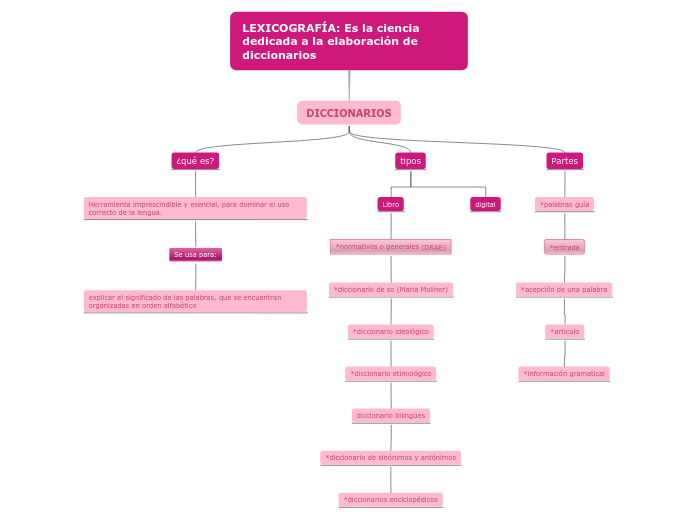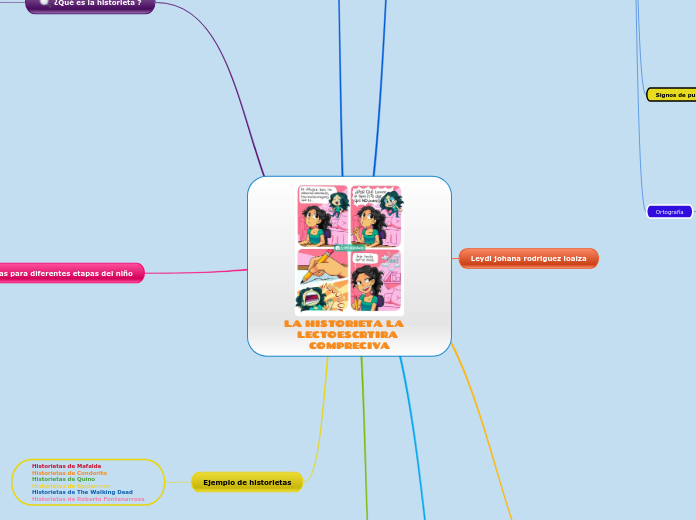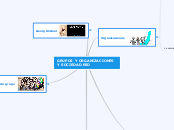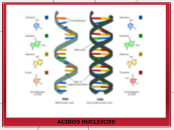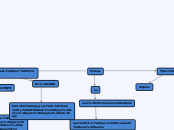LEXICOGRAFÍA: Es la ciencia dedicada a la elaboración de diccionarios
Type in the name of the multiple-perspectives text.
Example: Bridge to Terabithia by Katherine Paterson
DICCIONARIOS
Identify an important issue from the text that is being presented from different angles. Type it in.
Example: Jesse's drawing talent.
Partes
Whose character does the third point of view belong to?
Type in his/her name.
Example: Mr. Aarons, Jesse's father.
*palabras guía
What does the character think, say or do that suggests their perspective on the issue?
Type in a quote and try to maintain the citation format.
Example: 'He would like to show his drawings to his dad, but he didn't dare. (...) He'd thought his dad would be pleased. He wasn't. What are they teaching in that damn school? he had asked.' (Paterson, 2.8)
*entrada
What kind of narration introduces the viewpoint?
Choose an answer:
First person point of view - using the personal pronouns 'I' or 'we'Second person point of view - using the personal pronoun 'you'Third person point of view - using the third-person pronouns 'he', 'she' and 'they'Omniscient point of view - an all-seeing observer tells the story
*acepción de una palabra
*articulo
*información gramatical
tipos
Decide on the second point of view
Name the character (it can either be the main character or one of the supporting characters) whose point of view you are presenting.
Example: Miss Edmunds, Jesse's music teacher.
digital
Libro
Type in a quote that points out the character's position about the issue.
Try to follow a citation format: author's name, chapter, and page.
Example: 'She said he was unusually talented, and she hoped he wouldn't let anything discourage him.' (Paterson, 2. 8)
*normativos o generales (DRAE)
*diccionario de so (Maria Moliner)
*diccionario ideológico
*diccionario etimológico
diccionario bilingües
*diccionario de sinónimos y antónimos
*diccionarios enciclopédicos
¿qué es?
Decide on the first point of view you are going to present.
Type in the name of the character (it can either be the main character or one of the supporting characters) whose point of view belongs to.
Example: Jesse Oliver Aarons, Jr., the main character of the novel, a fifth-grader living in a rural Southern area.
Herramienta imprescindible y esencial, para dominar el uso correcto de la lengua.
Type in a relevant quote that highlights the character's point of view towards
DICCIONARIOS.
Try following a citation format: author's name, chapter, and page.
Example: 'Jesse drew the way some people drank whiskey. (...) Lord, he loved to draw. (...) When he was in first grade, he told his father that he wanted to be an artist when he grew up.' (Paterson, 2. 7)
Se usa para:
What type of narration introduces the viewpoint?
Choose an answer:
First person point of view - using the personal pronouns 'I' or 'we'Second person point of view - using the personal pronoun 'you'Third person point of view - using the third-person pronouns 'he', 'she' and 'they'Omniscient point of view - an all-seeing observer tells the story
explicar el significado de las palabras, que se encuentran organizadas en orden alfabético
